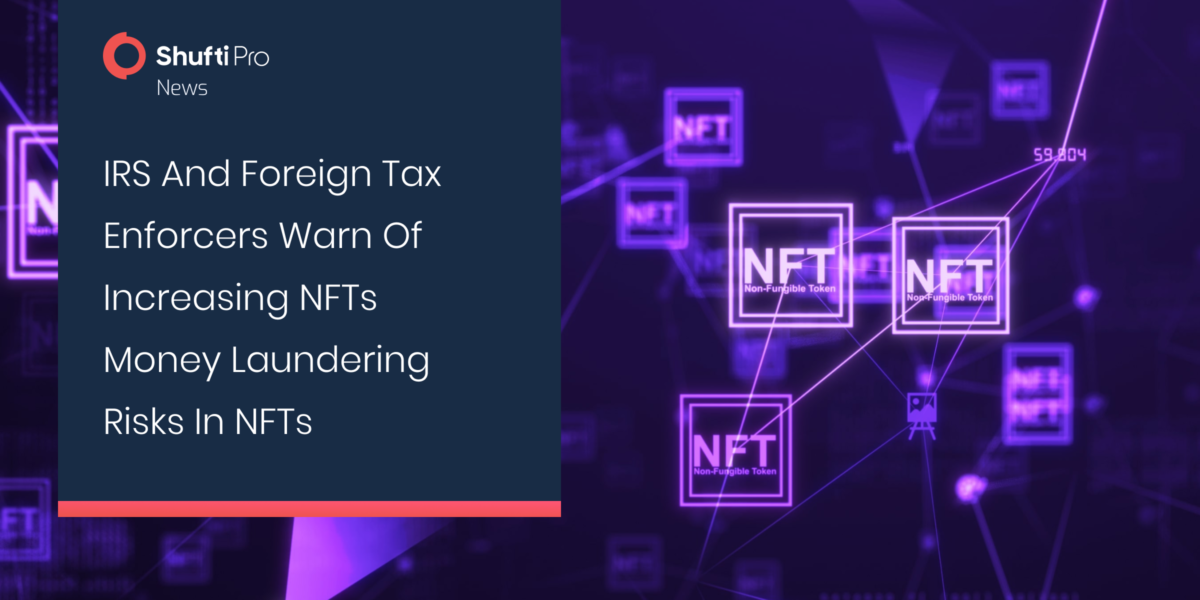IRS And Foreign Tax Enforcers Warn of Increasing Money Laundering Risks in NFTs

The IRS and foreign tax enforcers have issued a warning of the increasing risks of money laundering and identity fraud in non-fungible tokens (NFTs).
On Thursday, April 28, the Joint Chiefs of Global Tax Enforcement (J5), a consortium of regulators including the IRS and agencies from Australia, Canada, Netherlands and the U.K jointly issued a warning on risks arising from NFTs.
“While the majority of cryptocurrency owners and those purchasing NFTs are doing so for righteous reasons, criminals look for any way to exploit new technologies. Cryptocurrencies and NFTs are not immune,” a press release accompanying the new document states.
According to Forbes, the J5 advisory details specific warning signs of fraud and money laundering in NFT marketplaces, aiming to give tips to banks, other companies and law enforcement for spotting bad behavior.
Will Day, the head of J5 and deputy commissioner of the Australia Taxation Office, said it will be “the first of many” documents that J5 will publish to fight tax crime and money laundering in digital assets.
One red flag is a clearly established network of parties who send and receive “the same transaction or a group of transactions” to each other, according to the document. In other words, a tightly knit cluster of digital accounts transacting among themselves.
Another “strong indicator” is “NFTs being sold for large sums and reacquired from the same party or a third party for smaller amounts,” the document says. Yet another signal is when overpriced or underpriced NFTs trade in frequent transactions.
Another sign of illicit financing is the quick buying and selling of low-value NFTs. The J5 document even calls out transactions of NBA Top Shot, the basketball video NFTs that gained popularity last year but have since lost most of their value.
“On Top Shots with the NBA, you see a lot of low value (i.e. sub 10K) NFTs being bought in the same day with owners only holding their position for minutes. This could be a way to wash funds.”
Suggested read: IRS Highlights Potential Risk of Fraud in NFTs and Cryptocurrencies











